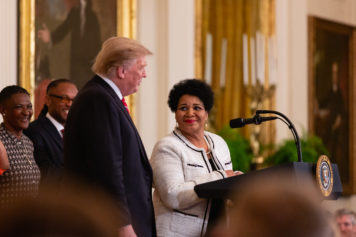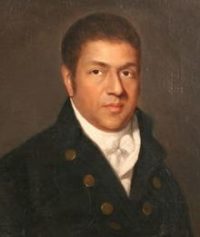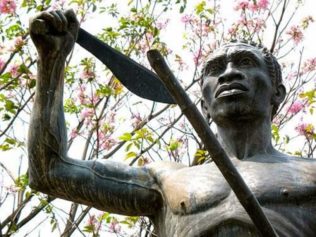
President Barack Obama signs legislation in the Oval Office, Dec. 22, 2010. (Official White House Photo by Pete Souza)
America has welcomed its first Black president, Black politicians are rising to fame in the Conservative party and more than 40 members of Congress are currently Black, which marks an all time high.
Politicians today are forced to appeal to Black voters because that vote has more power over who will be in office than they may have assumed in the past.
But as the nation’s first Black president prepares to leave the White House and issues of importance to the Black community continue to dominate the news hole, why is it that actual legislative changes that reflect the voice of this community are still extremely rare?
Perhaps the first step to understand such a question is to dispel the myth that getting more Black people in office is enough to get Black people’s voices turned into legislation.
The same logical fallacies that plague the idea of blaming President Obama for all the challenges still facing the Black community at the end of his two terms in office, also plague the idea that more Black politicians will automatically result in changes that are favorable to the Black community.
Politicians are exactly that—politicians.
They are not the hand of God nor do they hold the right to change legislation in whatever way they see fit. In a system of checks and balances there is a substantial amount of cooks in the kitchen.
The presence of more Black people in office does not directly correlate to a change in the makeup of the overall political landscape.
Not to mention the fact that while 45 Black members of Congress is a historic high, as reported by The Atlantic, it shouldn’t overshadow that there are more than 500 members of Congress in total. So just how impressive is that historical milestone in the grand scheme of policy?
But University of Chicago Law School Assistant Professor, Nicholas Stephanopoulos, would warn against simplifying the issue of Black representation to a matter of how many Black people are filling Congressional seats or showing up at the polls.
Using a collection of data from Princeton political scientist Martin Gilens along with recent exit polls, Stephanopoulos found an interesting correlation between what certain races desired and what actually happened in the realm of politics.
At both the federal and state levels, Black people had “much less sway than whites.”
“For example, a federal policy with no white support has only a 10 percent chance of being enacted, while one with universal white support has a 60 percent shot of adoption,” he explained in an article published by The Atlantic. “But while a proposal with no black support has a 40 percent chance of becoming law, one enjoying unanimous approval has only a 30 percent probability of enactment.”
The implication of such data is extremely troubling.
“In other words,” he continued. “As support for a policy rises within the Black community, the odds of it being achieved actually decline.”
This trend remained true regardless of political affiliation and was also true amongst women and Hispanics as well.
It’s an unfortunate reminder that America is still a country that is built to operate in favor of white men. It also has a reputation of blatantly ignoring the poor.
“Changes in the ideology of female or poor voters also have no effect on state legislative outcomes,” Stephanopoulos noted.
What this means is that the desires of rich, white men are more easily turned into legislation while the needs of low-income or Black communities fall to the wayside, regardless of who is calling the White House home or filling Congressional seats.
Unfortunately, it is still impossible to explain with concrete evidence and definitive data why this problem persists or what is causing this trend to continue even when people of other demographic backgrounds are placed in a position of power.
But Stephanopoulos did propose a few theories that are all rooted in three major factors of civic engagement—participation, resources and ideology.
“Perhaps groups whose members engage more actively in politics—by voting but also by attending meetings, contacting representatives, volunteering for campaigns, and so on—have more sway over policy outcomes. Or maybe wealthy groups have more influence,” he said. “If money is the mother’s milk of politics, as Jesse Unruh once said, it is the affluent who control more of this vital resource. And ideology may matter too. Extreme groups may have trouble making deals and forming alliances as effectively as moderate ones.”
What is clear, at least for now, is that the idea of true Black political representation is still more of a myth than it is a reality.



